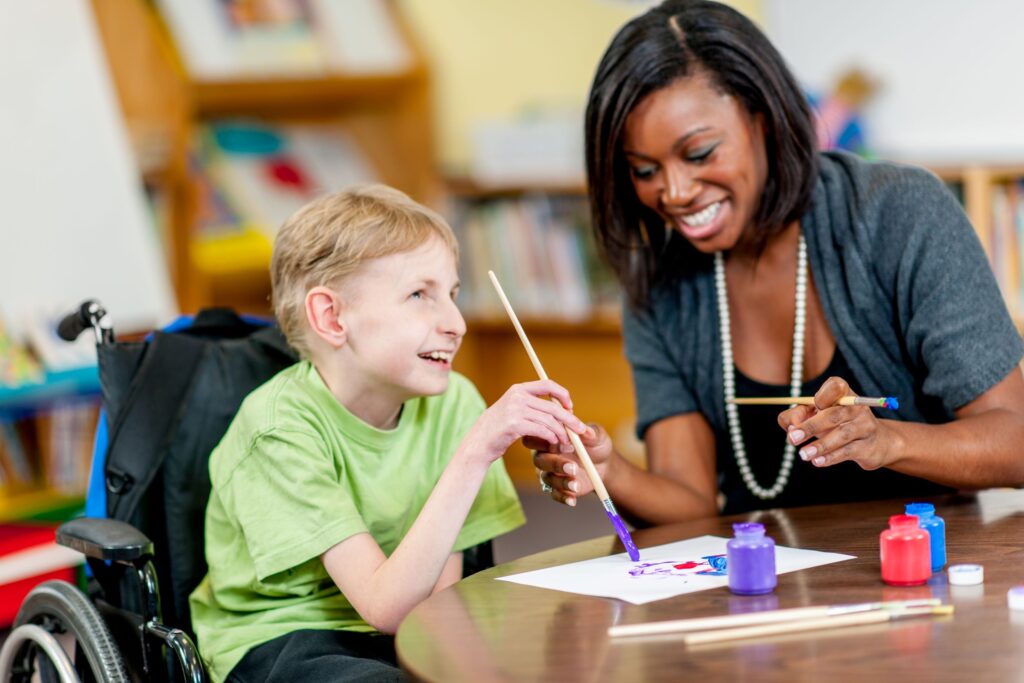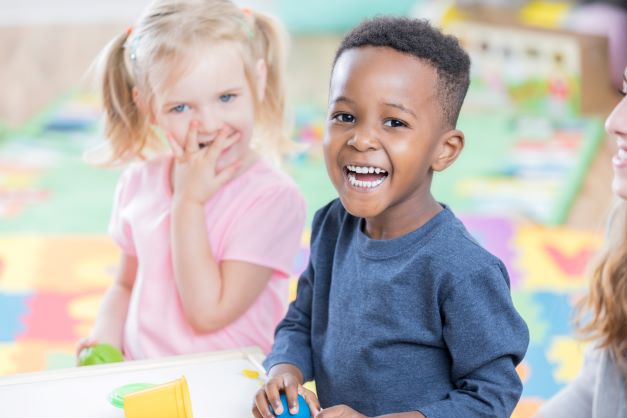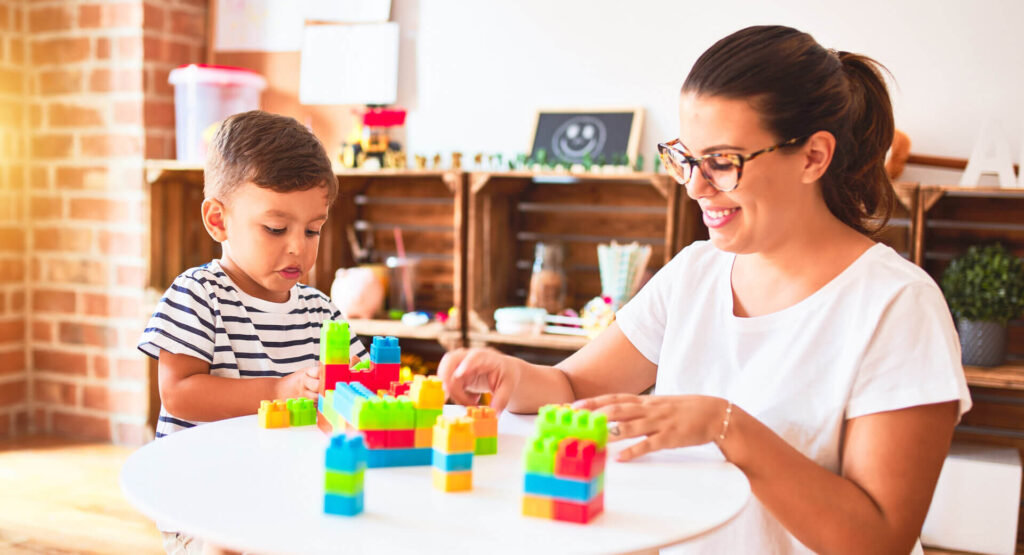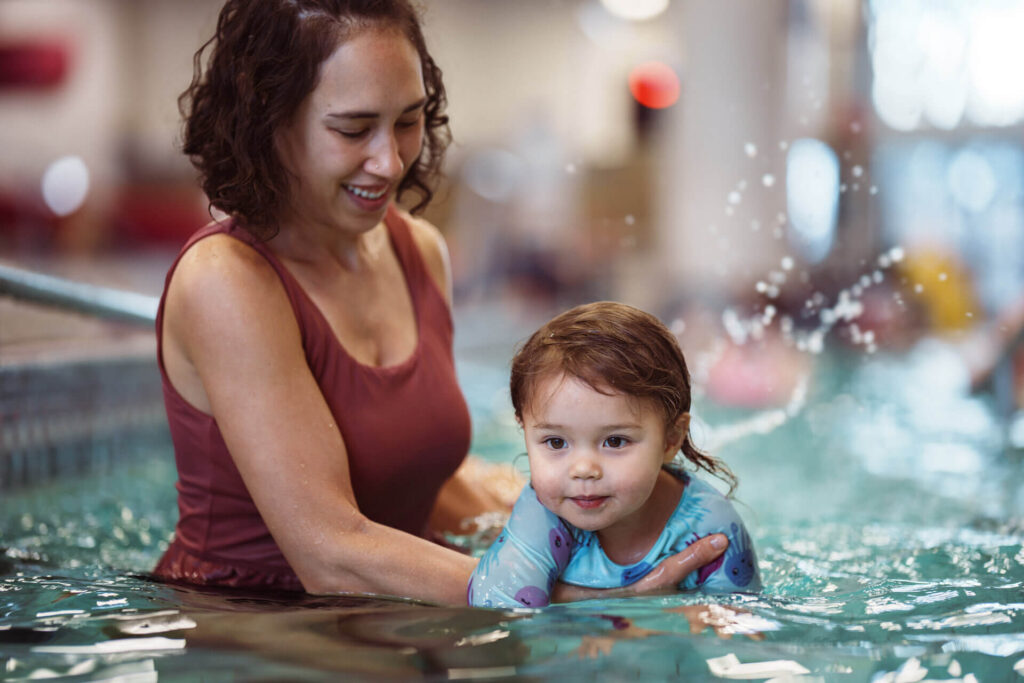Developmental delay: what should you look out for?
Every child is on their individual journey through life.
And in the early years, this journey can sometimes look different to that of their friends and peers around them.
Developmental delay is when expected developmental growth slows down significant or stalls, resulting in a delayed ability to communicate, interact, understand and engage with the world around them.
Learning the news that your child may have a developmental delay can be difficult and feel overwhelming.
Fortunately, there are plenty of therapy options available and awareness is an essential first step in being able to support your child’s journey.
Here, we’ll walk you through some of the main signs to look out for.

Language and speech delays
As one of the most common developmental delays, language and/or speech delay in toddlers is hard to gauge.
Speech and language develops during a baby’s first year, and a child should be able to say at least 15 words by the time they’re 2 years old.
Language and speech delay can be caused by several factors like hearing loss, intellectual or developmental disorders like autism, or a lack of adequate social and intellectual stimulation.
If you notice your child is unable to communicate using at least one or two words by their first birthday, or only imitating rather than initiating speech, then this may well be a sign of a language developmental delay.
Some other signs to keep an eye on are:
- Limited sounds, or no responses to loud sounds at 3-4 months
- Limited attempts to imitate sounds at 4 months
- Trouble hearing or responding to loud noises (3/4 months onwards)
- Cannot say a word at 12 months
Fine and gross motor skill delays
As toddlers grow up, they start to use their fine and gross motor skills.
Gross motor skills kick in first – with crawling and walking, then the fine motor skills come into play with the ability to use smaller items like building blocks, forks, pencils, or crayons.
Delayed fine and gross motor skills can affect how a child interacts with people and objects around them.
Here are some signs to keep an eye out for:
- Unable to reach or hold objects at 3-4 months
- Unable to sit briefly without assistance at 6 months
- Unable to crawl or cruise along furniture by 12 months
- Cannot walk on their own at 18 months
You might also notice smaller behaviours that indicate a delay in fine or gross motor skills like difficulty clapping, grasping, or reaching.
If you start to notice these, it’s good to get in contact with an occupational therapist with experience in early childhood intervention to get a better picture of what’s happening.
Cognitive delays
Cognitive development can also be a tricky thing to measure in young children. Cognitive abilities are the thinking tools needed to complete any task.
Our cognitive abilities depend on how we understand the world and act to solve problems, remember and perceive things.
A cognitive delay is when a toddler’s mental ability is slowed down or limited resulting in a below-average performance compared to others their age.
Cognitive delay can be caused by genetic conditions, complications during pregnancy or birthing, or other health-related conditions.
Here are some warning signs to be aware of:
- Limited babbling up until 12 months.
- Unable to point or react to objects of interest – like bright colours, or food.
- Failing to show their parents or caregivers objects they find interesting.
- Repetitive actions or movements
- Not copying or attempting to imitate actions or sounds
Social and emotional delays
Social and emotional delays can sometimes be the hardest to spot and are often the hardest to deal with over the long term.
A social and or emotional delay prohibits a child’s ability to engage in meaningful ways with adults and other children.
There can be many different causes of social and emotional delays, including trauma, brain injuries, or cognitive disorders that mean the child might process information differently from others at the same stage in life.
Here’s what to look out for:
- Difficulty understanding social cues
- Little or no drive to interact with caregivers or others
- Prolonged tantrums
- Violent behaviour towards others
My child may have a developmental delay. What do I do next?
First things first: take a deep breath and remind yourself that there are plenty of options available to help your child, and your family to understand everything you need to know about developmental delays.
Always remember: you’re not alone and help is available. It is important to speak to your GP, who may refer your child to a Paediatrician.
With a diverse community of therapists with experience in supporting children with developmental delays, not to mention the many early childhood intervention services available, you have multiple support networks already in existence ready to help you through the next stage.
Get in contact with a therapist today and give your little one the support they need.











